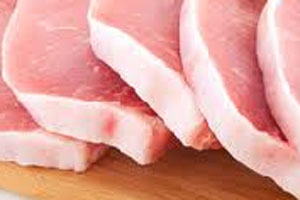TPP talks challenge Canadian pork subsidies

The 15th round of the Trans-Pacific Partnership (TPP) trade talks is being held in Auckland, New Zealand (NZ) from 3–12 December and is shaping up to be a tough round for Canadian officials.
The 11 strong TPP partnership group includes Australia, NZ, the US, Brunei Darussalam, Chile, Malaysia, Peru, Singapore and Vietnam, with new comers Canada and Mexico participating for the first time. Collectively TPP nations represent a market of more than 658 million people with a combined Gross Domestic Product (GDP) of $20.5 trillion, accounting for nearly 30 per cent of global GDP. This is a substantially larger trading power than the 27 nation EU bloc.
Australian Pork Limited (APL) CEO Andrew Spencer said “Australian pork producers, along with our counterparts in NZ and the US opposed the entry of Canada to the TPP back in June, based on their continued heavy use of subsidies to their domestic pork industry.”
“Canadian pork producers, by benefitting from substantial government subsidy programmes, enjoy an unfair competitive advantage over hard-working Australian pork producers who operate in a subsidy-free environment. This continued action by the Canadian government is, in Australian pork producers’ eyes, diametrically opposed to the goals and long term objectives the TPP group is striving to achieve. It is on these grounds that Australian pork producers seriously question Canada’s genuine commitment to the goals of the TPP,” Mr Spencer said.
Collectively, Australian, US and NZ pork producers and their national representative bodies support their respective governments’ international efforts to liberalise trade and remove trade distorting barriers and subsidies. The TPP agreement is reflective of those efforts and is considered an ambitious, comprehensive agreement that will act as a blueprint for an eventual Asia-wide trade agreement.
President of the US National Pork Producers Council, R.C. Hunt said that Canada’s failure to reform its considerable government support for their pork producers puts not only US but Australian and NZ hog farmers at a major competitive disadvantage; “In reality we cannot compete on a level playing field. In the upcoming TPP round, you can bet your bottom dollar we will be putting pressure on Canada to do something about its pork subsidy programs.”
NZ Pork CEO Owen Symmans echoed the collective sentiment of Australian and US pork producers around Canada’s inclusion in the TPP group.
“Canada’s domestic subsidies effectively function as export subsidies, displacing pork production in overseas markets such as NZ and Australia. This is damaging to domestic production in both countries.
“I am aware that Canada’s own Federal Minister of Agriculture Gerry Ritz has specifically refused to endorse the Ontario Risk Management Program (RMP), which is one of a number of Canadian subsidy programmes. Minister Ritz denounced the RMP as ‘completely countervailable’ in comments to the Canadian House of Commons. Surely this is clear evidence that Canada’s tolerance for domestic subsidies for its pork industry is hypocritical and contrary to its participation in a free trade agreement like the TPP” Mr Symmans said.
Canadian officials will face tough questions over their country’s commitment to the principles of the TPP at the next round of TPP trade talks in respect to Canada’s continued pork subsidisation programmes.







